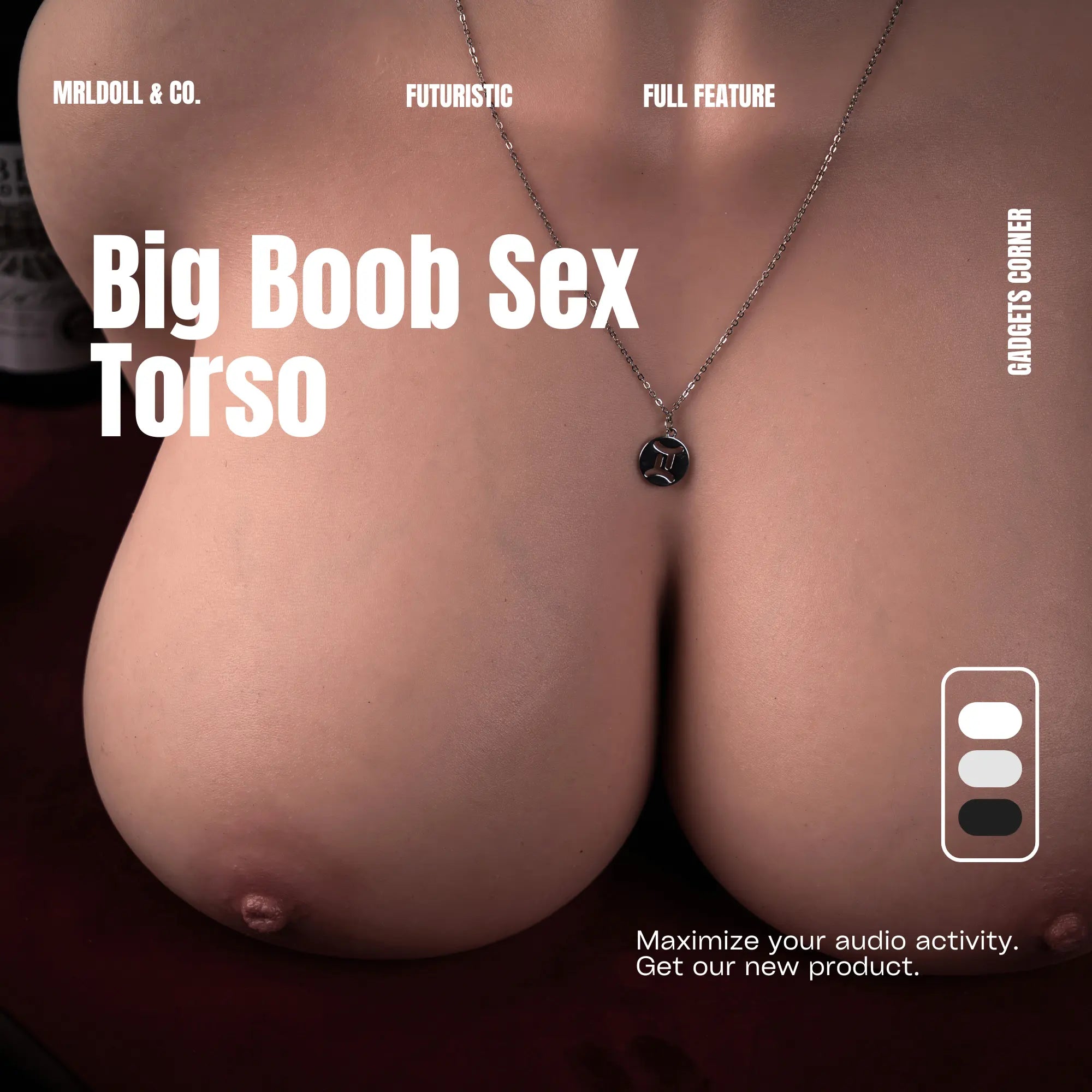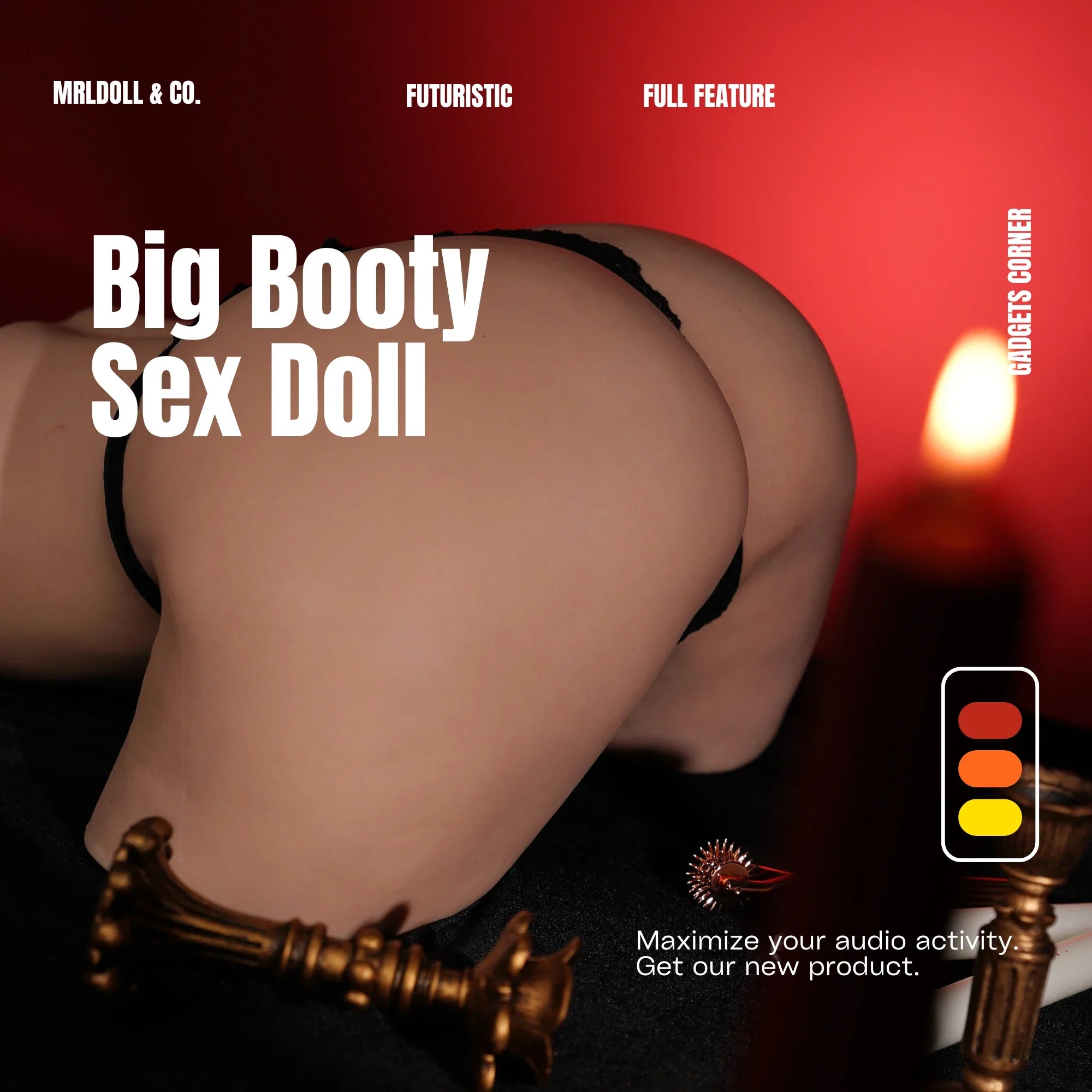I Have Feelings for My realistic torso sex doll—How Can I Move On?
Summary
In today’s fast-paced world with increasingly diverse social dynamics, more people are developing emotional attachments to their realistic sex doll companions. If you find yourself forming feelings that go beyond physical interaction, there’s no need to feel ashamed or alarmed. This article delves into the psychological and societal factors behind this phenomenon, explores the challenges it may bring, and offers practical strategies—grounded in psychology and real-life experiences—to help you gradually move beyond dependency and reconnect with genuine human intimacy.
1. The Psychology Behind Emotional Dependency

Humans Crave Emotional Connection
As inherently social beings, humans need emotional bonds and support. When real-life relationships fail to meet these needs, a sense of emotional void may arise. In such cases, a full body sex doll—an entity that doesn’t judge or reject—can easily be assigned emotional value, becoming a vessel for comfort and reliance.
The Effects of Anthropomorphism
Psychological studies show that prolonged interaction with inanimate objects can trigger the brain's natural response to close companionship. You may unconsciously project emotions onto your sex toys for men, viewing them as emotional partners. While anthropomorphizing objects is common, it complicates and often obscures the presence of emotional dependence.
Loneliness, Stress, and Substitution Effects
Modern stressors—like work pressure, family conflict, or social isolation—can make it difficult to find fulfillment in human relationships. As loneliness builds, sex dolls may unintentionally become emotional stand-ins, offering a form of temporary healing. This substitution effect often stems from deeper emotional wounds that require mindful self-regulation and inner healing.
2. How to Rationally Understand Your Feelings Toward a sex doll torso
Accept Yourself and Acknowledge Your Emotions
First, understand that developing feelings for a torso sex doll doesn’t make you “abnormal.” It’s a complex emotional projection mechanism—an unconscious response to emotional deprivation in your real life. Accepting your emotions is the first step toward understanding and transforming them.
Differentiate Between the Source and the Projection
Try keeping a journal to document emotional highs and lows. Reflect on whether your feelings stem from the doll itself or from unmet needs like safety, understanding, or affection. Talking to a trusted friend or writing down your thoughts may help uncover underlying emotional gaps that need attention.
Seek Psychological Support and Build Self-Awareness
If self-adjustment proves too difficult, consider speaking with a mental health professional. Therapy can provide tools for emotional regulation and help you gain clearer insight into your emotional patterns—paving the way for long-term change.
3. Practical Strategies to Reduce Emotional Dependency
Rebuild Your Daily Routine
l Limit Alone Time: Gradually reduce the time spent alone with your 【realistic sex dolls】. Establish reasonable "companion hours" instead of staying immersed in artificial intimacy for long periods.
l Set Goals and Manage Time: Create daily or weekly plans that include work, learning, exercise, and hobbies. Channeling energy into meaningful activities can shift your focus away from dependency.
l Expand Your Social Circle

l Join Interest Groups or Volunteer: Participating in group activities or volunteering allows you to connect with like-minded individuals and receive emotional feedback from real interactions.
l Engage With Family and Friends: Maintain strong bonds with those who care about you. Open conversations and regular interactions can ease feelings of loneliness and help you build healthier emotional habits.
Develop New Interests and Redirect Focus

l Learn New Skills or Take Up a Sport: Whether it’s music, cooking, calligraphy, or fitness, hobbies can boost your self-esteem and gradually replace your emotional dependence on 【sex dolls for men】
l Practice Mindfulness and Meditation: Mindfulness can help you stay present, accept emotional shifts, and foster inner calm—supporting emotional independence.
l Set Milestones to Encourage Personal Growth
Establish short- and long-term goals, and reward yourself for achieving them. This reinforces your sense of progress in real life and gradually diminishes emotional reliance on artificial connections.
4. Rebuilding Real-Life Relationships and Intimacy

Start Small and Open Up Gradually
Reconnecting with real people takes time and courage. Begin with simple conversations—like chatting with family or attending small gatherings—to build trust and emotional safety. Remember: real emotional bonds are built on patience and sincerity.
Explore New Social Opportunities
Use social media or local events to find groups that align with your interests. Face-to-face interactions offer genuine warmth and fulfillment. As new friendships develop, sharing your experiences can help build emotional closeness.
Take a Chance on Romantic Relationships
If you're open to dating again, try stepping outside your comfort zone—whether through in-person meetups or friend introductions. It may feel awkward or stressful at first, but each real-life interaction becomes a building block in restoring confidence and emotional independence.
5. Coping with Setbacks and the Role of Professional Help
Embrace Emotional Ups and Downs
Breaking habits and emotional attachments doesn’t happen overnight. It requires time, effort, and a willingness to learn from mistakes. If you stumble, be patient with yourself—it’s all part of the journey toward growth.
Track Your Progress with Reflection
Periodically assess how you’re doing. Journaling, tracking mood shifts, and monitoring your social interactions can highlight your progress and pinpoint lingering emotional triggers.
The Importance of Professional Counseling
If you’re struggling to cope on your own or if emotional dependency starts impacting your quality of life, don’t hesitate to seek professional support. A therapist can help you explore the root causes of your feelings and tailor a plan that fits your emotional needs.
Conclusion
Developing emotional reliance on 【male sex toys】 is a growing phenomenon in modern emotional life—especially among those struggling with loneliness or seeking comfort. But with honest self-reflection and proactive effort, you can learn to understand and manage this attachment. The key lies in recognizing your emotional needs, courageously stepping into the real world, and continuously seeking balance and peace within. We hope this article offers both practical guidance and heartfelt encouragement to help you rebuild your confidence in real-life relationships.
FAQ
Q: Is it normal to develop emotional dependence on 【sex toys for men】?
A: Yes, it’s more common than you might think. It often reflects a natural psychological response to emotional emptiness or loneliness, especially when social interaction is lacking.
Q: How do I know if my emotional dependency is affecting my life?
A: If you find yourself prioritizing interactions with a sex doll over connecting with family, friends, or colleagues—and it begins to impact your work, studies, or daily quality of life—it may be time to reflect and seek support.
Q: What’s the first step to break away from this dependency?
A: Start by reducing time alone, setting daily goals, and engaging in social or hobby-based activities. These efforts can redirect your emotional energy toward more fulfilling human connections.
Q: What if these methods don’t work for me?
A: Everyone’s journey is different. If you find it difficult to cope alone, a mental health professional can help explore your emotional needs and offer personalized guidance.










